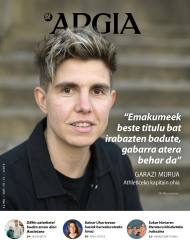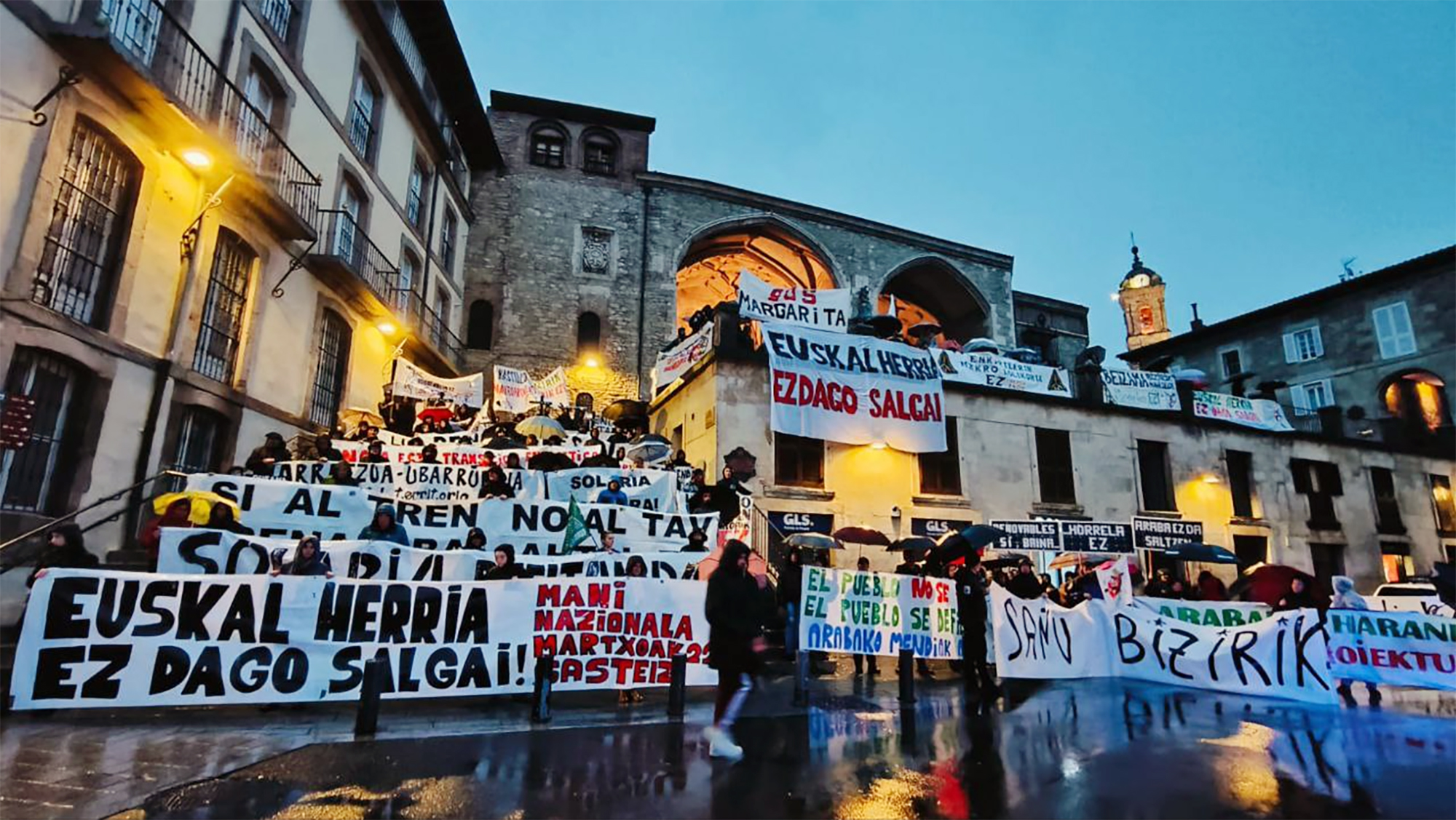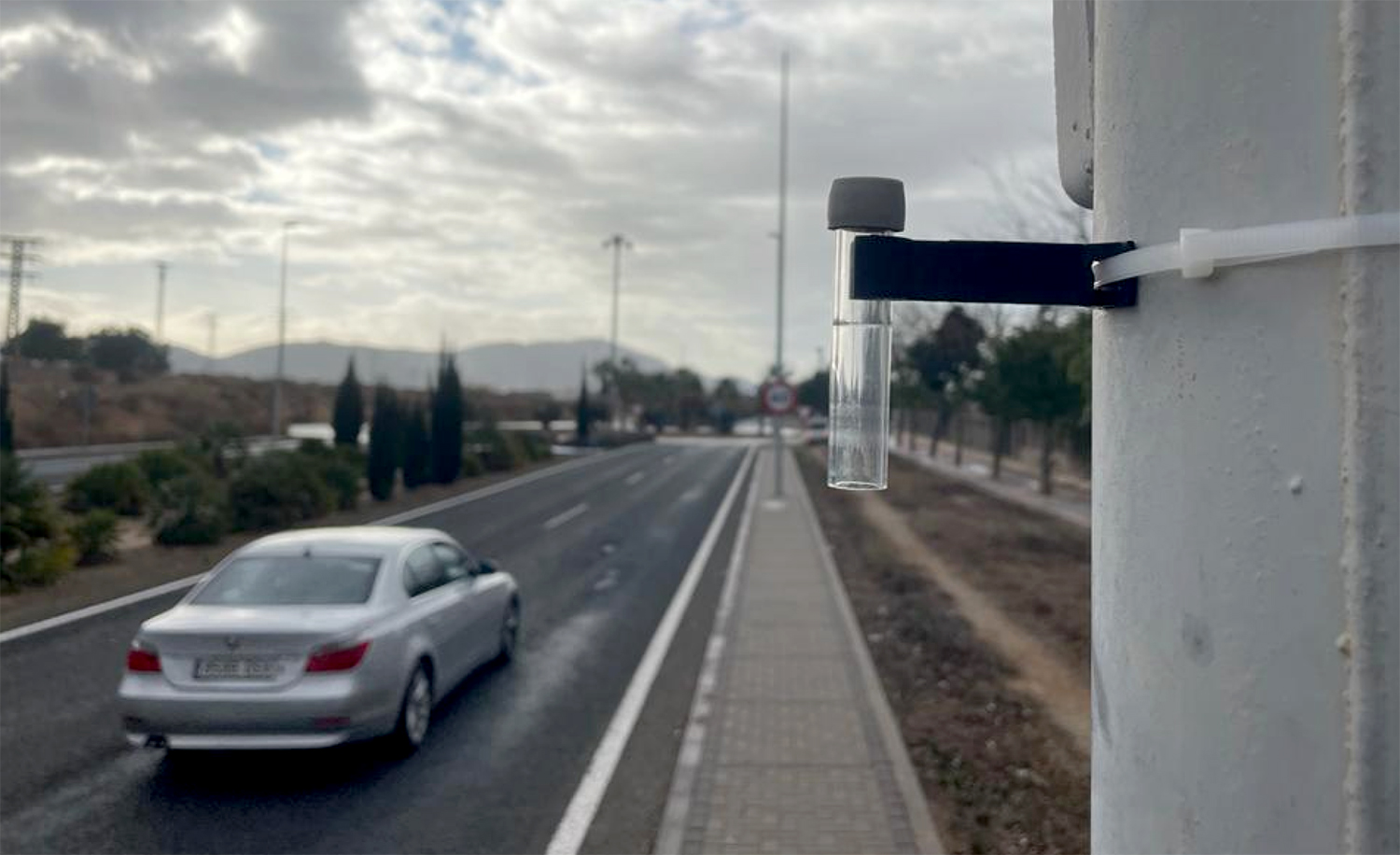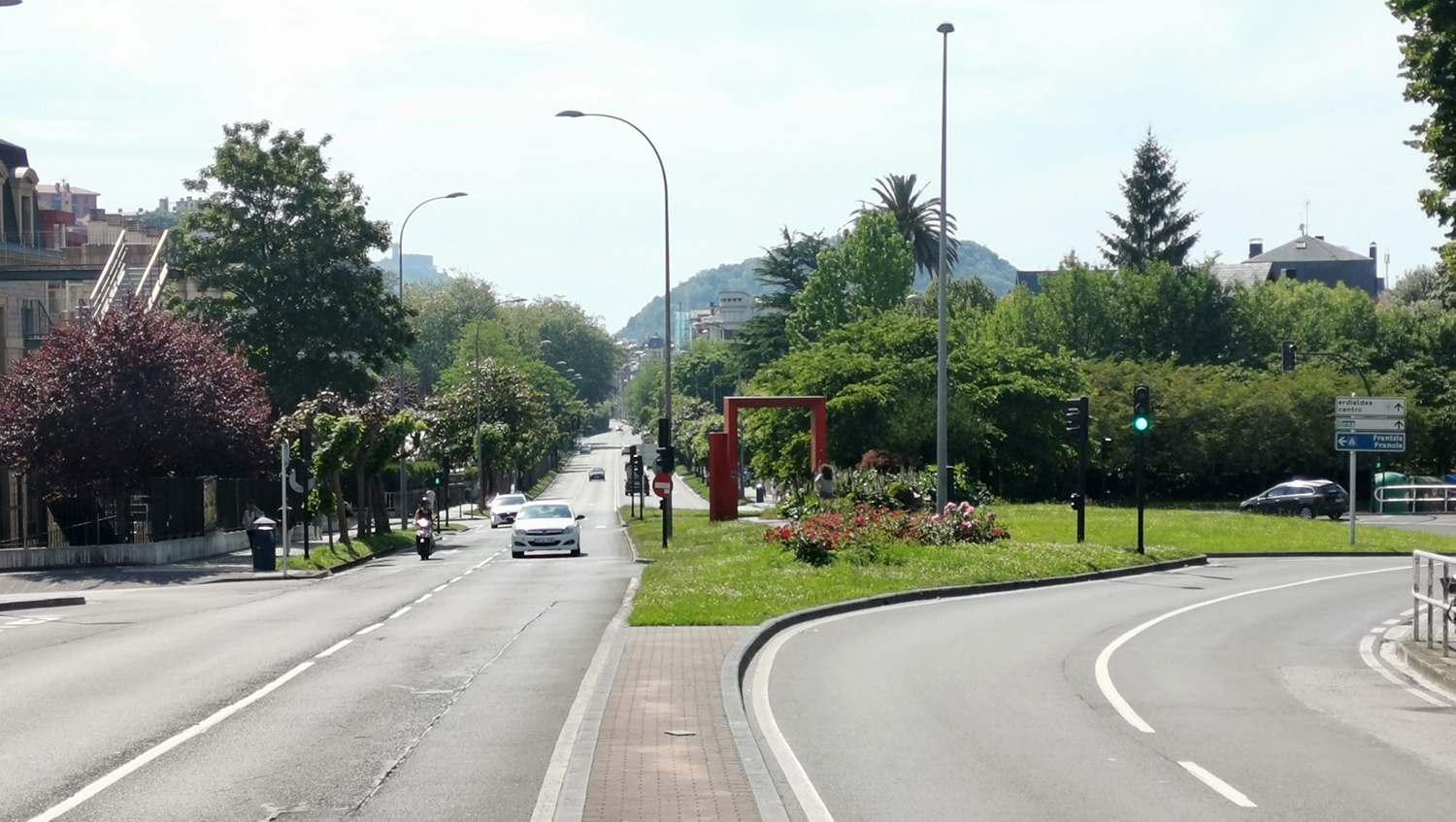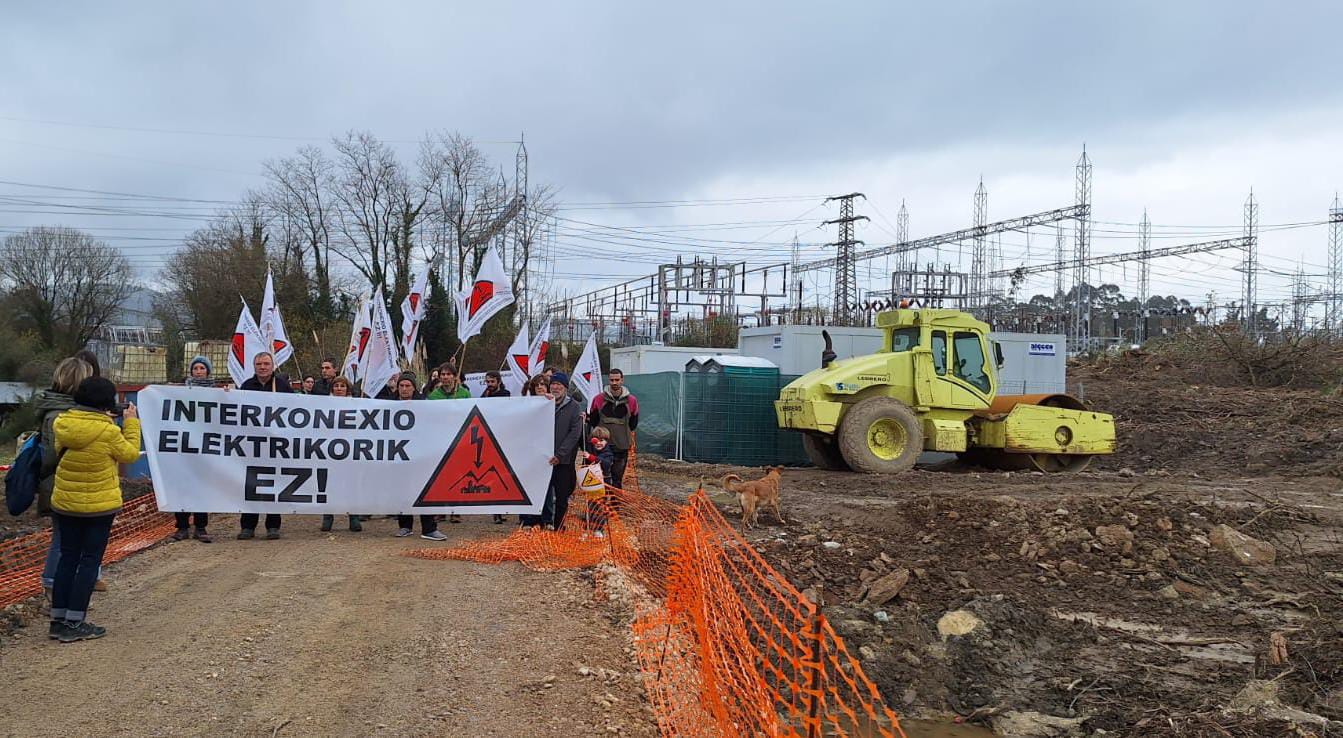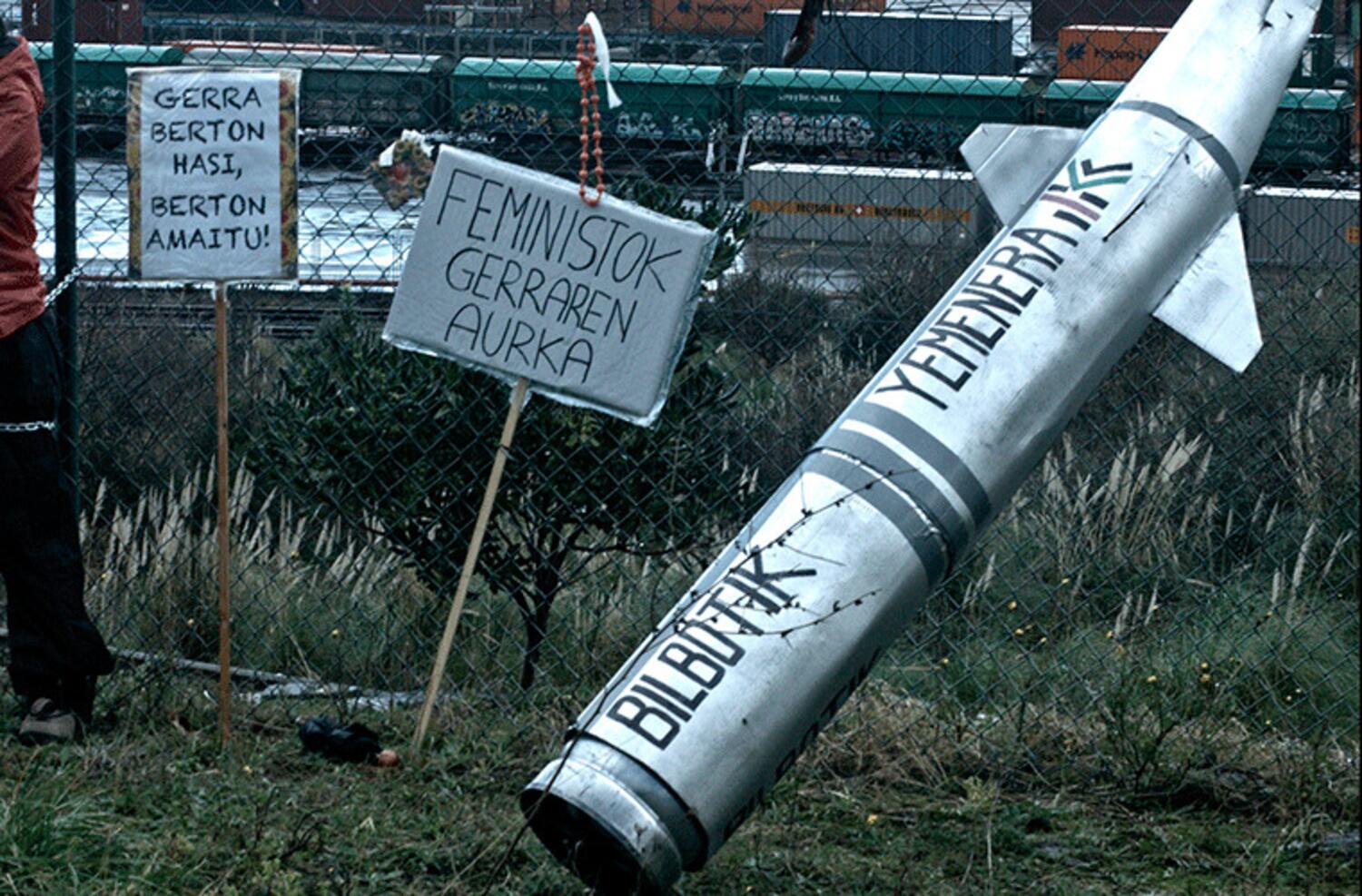Interior
- “We believe that in the face of the cultural offensive of dystopias and the individualistic and desperate reality in general, we must represent utopias to be more mentally and emotionally stronger,” he distributed the awards of the contest of accounts and translations of the ecological collective Sukar Horia. The challenge of literary activity has been to imagine a stimulating future and the way to reach it. We brought to ARGIA the story of Agustín Arteaga.

No one will be hungry in our people, no one will be homeless in our people. That compromise was the starting point. We gather tens, ten units of living together form a people whatever: a person or six; a biological family or a group of friends; a child or an old man, what I know. But the commitment to live according to that principle united us: No one will be hungry, no one will be homeless.
Desire and need united us, ideological or material. Except for the tangible need of the moment, ghosts were embodied day after day. It was a time of fear, fuck, of fear. The pandemic came, after the war in Europe, the climate began to show signs of being as crazy as man. The neo-fascists were the first to be able to connect with the horror of citizenship and, therefore, we became increasingly on the right: breaking the glass ceilings of formal democracy with the extreme right until the elections are over, the right at the far right, the Social Democrats on the right, the leftists trying to revitalize the zombie of Social Democracy, the radical left making a life as progressive as the rupturist discourse and the Toan. Not only was I scared by fear, but I was also angry with everything and everything, and who I was going to vote for and on the far right. Have strategic clarity.
But that wasn't all the most terrible thing. The most terrible thing was that we all imagined the future with the greatest horror. We couldn't imagine more vivid futures, let alone dream utopias if we were trying to exercise our imagination. How we would dream beyond capitalism, if we weren't able to want beyond capitalism. Others, on the contrary, developed a sadistic delight by not taking their eyes off hell and predicting to others an inevitable disaster, most of us lived on horseback between oblivion and terror... Everyone did what they could, what do I know? Thanks to the obstinate fanatics of nightmares.
Reality would also give us reason to move to mugarri, katebegi to katebegi. Soon came the nuclear bomb against Gaza, the Yankee military occupation of Taiwan by order of Harris and the declaration of war from China to the United States, the direct war between the European Union and Russia, the fires in Amazonia and Australia, the floods in England and Japan, and the War Economy, and the Compulsory Solidarity Service, and the Rationing. However bad that by then the archipelago of the peoples was already well developed, we had the means to calm our fears and satisfy our needs, in part, to try to exit on the left and down, not on the right or above. Thank you, because then we were joined by a lot. Today we would be more if we had started earlier; but if we had not started then we would not be thousands today, and we would not be gathered here. Isn't it? Finally, who knows.
The disaster also brought with it opportunities and benefits that we had not foreseen. Now it may seem obvious, but then who would have thought of it? When the car became a privilege for the wealthiest and the big factory in the sector went bankrupt, poverty made us shudder. But the end of continuous mobility once again entrenched people in their towns and neighborhoods, ended working 60 kilometers from their place of residence, ended urbanization to sleep or towns. The end of mass tourism plunged all peoples and economic sectors. But with it the rental price also collapsed and the occupation of thousands of homes that were no longer used in three months a year became common sense. When the decline in energy production and the dissatisfaction of the war machine limited Internet consumption to twenty minutes a day, we were surprised by the collective withdrawal crisis. But after the most serious of addiction, we inevitably learned to live slower and without continuous stimuli, and to relate without antisocial networks. Deceleration, digital disconnect, locality... We started to tread a more appropriate land to sow.
My people were part of the First Wave of Life, but not of the first. By the time we joined, there were already four or five affinity groups in Vitoria-Gasteiz, some tens in the Basque Country. The name of the people we picked up later. These first groups of affinity emerged, at the same time, from the mutual aid networks that had multiplied years before: from the food networks, from the housing networks and from the unions, from the local feminist groups, from the neighbourhood and the collective defense... from the popular movements that, to put it another way, joined militants and marginalized groups, or from experiences that sought to reconcile the satisfaction of daily needs.
I've gone big, but, sorry, let's go back to the small. No one will be hungry, no one will be homeless. It was our ethical glue. The first peoples were created between friends and acquaintances, but they were gaining diversity step by step. If someone was not sufficiently ventryloquist the group would feed him, if someone was left homeless the new roof that the group sought or occupied by one of its members. Each group did it in their own way: sharing only when it comes to responding to emergencies that would lead to a very extraordinary life, so that food would be collective whatever the situation the people here would create a popular warehouse, some not only would eat, but they would also buy a common space to live together, or they would occupy whole portals, what I know, how many villages, how many villas.
.jpg)
However, as we moved forward in the War, we learned that there was no people that could guarantee the self-promotion of a people. The starving and unarmed members of the same people were becoming increasingly frequent. So we did the double drop. On the one hand, we settled among the villages, first at the neighborhood level, then by cities or counties, and finally at the level of the Basque Country, until we call ourselves the Basque Herrioma of today. Since then, each people has been trying on their own to respond to basic needs, but when they cannot, others give them food and so on. On the other hand, we decided that states should also care about the needs that were leaving orphans: health, care, safety, etc. Also with others that we thought were necessary, like production and play. This process of roundness and deepening is called the Second Wave of Life.
And now we're immersed in the Third Wave of Life. We are already hundreds of peoples, thousands and thousands of citizens, for some of us we are terrorists who must be locked up, of course – that is why they are confidential meetings – but although for many of us we are today and here, a tangible possibility of having a habitable life of our own, and after tomorrow and throughout the world, to grow up in a new world. It's no small thing. We don't settle down. We want to compete with the Power to dilute power. Take utopia. Firstly, by occupying the large infrastructures that it has abandoned. So far we have occupied small bare plots, empty houses, whole buildings, premises and workshops; now we will discover the big factories, the energy infrastructures, the entire neighborhoods. That is why we have invited you from mouth to mouth, and from door to door, that you may form new peoples and join us.
You know all this, however, in the meetings of the previous weeks you have explained it in more detail. If you're here it's because you've been offered. This is the time to decide, my friends, within an hour we will leave, to break the morning. If anyone wants to reverse this is the last stop, but above all it is time to clear up the last doubts and give strength. I'm impatient! You? A
silence was made in the room, half-lit by the candles. The eyes, which have long been burned, look quietly at the dozens of eyes that look at it forming a circle. Eleven years and hundreds of assemblies have not passed since the first in which it participated in the formation of a new people.
I'm afraid. I want to go, but I am afraid – silence has been broken by a young man.
- Thank you for having the courage to confess, sharing fears is one of our main sources of strength. Fear of what, the police? Breaking the law? Be wounded or imprisoned? Truly, very reasonable fears. If you're here, it's because you have other fears, what do I know of loneliness, hunger, neighbors, of feeding the machinery of war into the Compulsory Solidarity Service or of turning it into your food. We offer you to change these fears for more interesting ones, to which we offer a joint and supportive response. And also salt and joy of living.
- My fears are other – he has pronounced a tired body from his chair, two children of a few years in the lap. In previous meetings they have explained that in the villages all people have some responsibility, whether in the health area, in reuse and recycling, in safety, in care, in education, in training, in agroecology… I know nothing.
"We all know something. In some of these responsibilities you will not contribute in all, because the responsibilities are of a rotating nature. Our movement has not been born from scratch, we drink from old fountains the water that is always new. The model of organization of the people brought it exactly from Brazil. Everything I heard in a camp stuck with me, a long time ago. “I thought those of the Landless Movement were terrorists, that’s what the media say, because I had nothing I joined in occupying these lands. I thought I wasn't able. But be it responsible for health, responsible for education, responsible for safety. I've learned that I'm capable. I thought we weren't able. But the first thing we did was we confronted the police and the gunmen and after we raised our house. I have learned that we are capable if we join together.” Incidentally, as far as studying is concerned, I have been asked by the training team to distribute these copies of the book Desjabetuak.
- Look, also the revolutionary, with the Bible, revolutionary but with the Bible, which has been courteous, but the old man, accompanied by a wink, has thrown him away.
- We call headlights to the books we use for collective readings, but the Bible, if any, is special, filled with questions rather than commandments – to the circus, to the blink and to the blinking eye, to play. The novel Desahuciados is a novel set in a Utopic-Topic future, by Ursula K. The writer Leguin wrote a century ago, but of amazing news. The civil war between the capitalists and anarchists ended with an agreement on the planet Urras: the anarchists would travel to Urras, the satellite of Urras, where they would organize their life à la carte. Since then, utopia has been growing, but in a dry, resource-less world reminiscent of the moon. We also try to live far from capitalism, even though we share the Earth, we also try utopia in this world that we have consumed. Leguin describes a different world, poorer but richer, with conflicts and contradictions but others, because anarreses are other people.
- Touche, the old man willingly gives up. Maybe I have too little confidence in our species, but I'm willing to take a new one.
- Until the penultimate victory, that's the attitude! “Laughter has been helped by a tense hand.” We want to live differently to create other desires, we want different to build other ways of life. It is a truly long road, but we have taken steps. Remember the removal of restrictions on the use of anti-social networks from Energy Rationing? The Central Authority reduced energy expenditure in areas that were considered more strategic to multiply that of networks, so the Smart Camera Network to Prevent Antisocial Behavior. Somewhere he saw that the person produced by the networks was more reliable than the person produced with strict external control but without the Internet. But it was even more interesting. Before its restoration, we lived, at least in part, in the Interior Territories, and many of us have not returned to the networks, although they are now offering them for free. The same goes for paid work. There are many who have come to the Interior because of unemployment, who have received a job offer and who have already chosen to live differently. When we were violently expelled and against our will, we begged them, desperate, to be re-admitted, convinced that there was no life possible outside. But more and more of us are voluntarily dropping out, because our new lives are more just and happier. Excuse redundancy. At the beginning of the century, when I was a teenager, my mother talked to me with nostalgia for the fighting atmosphere of the last years of the previous dictatorship. “We were freer because we had fewer things,” he said. Now I understand what I meant.
- The fear I have is not small, but the emotion is greater – a shy voice, in the second line of the circle, somewhere hidden.
- Sign that you've heard well! “Laughter is like thunder.” Look! Before I entered the movement, I spent years in the yard, among the increasingly miserable walls, that I couldn't afford for the migrations and the sobs. A friend dragged me to the mezzanine of the neighborhood. I dedicated myself to helping, and I started to help, to attend meetings, to share responsibilities, to share pains and joys. One day I read a new painting next to the house: You don't need a psychologist, you don't need a union. I realized that I had been without depression or migraine for months. I also realized that I laughed every day and I didn't stop laughing. Many of the most terrible prophecies of my youth have been fulfilled, but some of the utopias that were then insatiable to us are today our day to day. First, imagine a happy and just world. Excuse redundancy. It remains a dream but it is no longer a nightmare, we are building signs of that world at all times. That is what we are doing and we will do it within two hours, entering the area we occupy today. There are hundreds of people gathered like us in other parts of the city, now is the time. If someone wants you not to know it today, we are obstinate beaters, we will soon come back with a new invitation. But I don't recommend it... It will be nice!...
"Is it to say that we are all one?" Live you! Long live God! “The applause of the shattered applause of nervousness and emotion has almost covered the last biceps.” Take your stuff and get on the bus waiting for us behind the pavilion, come on!
"Where?"
- It's true! Now that we are fellow travellers we can already share the secret – an complicit smile has filled his face. Which was a source of death, we're going to turn it into a source of life. Do you know the abandoned factories of Mercedes? !

Do not look for this connection from Ezkio or Altsasu, let alone crossing the Ebro River through Castejón. The connection, or rather the connections, between the Basque Y and the AVE of Navarre is already a reality. It is these links in the plural that should concern us and... [+]
Euskal Herri osoan zehar daude mehatxupean hamaika baso, zelai, mendi zein nekazal lur. Horien defentsan diharduten tokian tokiko plataforma asko bildu dira larunbatean Gasteizen, EH Bizirik-ek deituta, inguru naturalaren “suntsiketaren” eta makroproiektuen... [+]
Dakota Access oliobidearen kontrako protestengatik zigortu du Ipar Dakotako epaimahai batek erakunde ekologista, Energy Transfer Partners enpresak salaketa jarri ostean. Standing Rockeko sioux tribuak protesten erantzukizuna bere gain hartu du.
Sareak nabarmendu du Euskal Herri osoko eragileak daudela bertan eta deialdiak 140tik gora atxikimendu jaso dituela: "Horrek islatzen du zein den gaur egungo errealitatearen urgentzia, lurraren defentsaren beharra eta auziarekiko dagoen konpromezua".
Greenpeaceko kideak Dakota Acces oliobidearen aurka protesta egiteagatik auzipetu dituzte eta astelehenean aztertu du salaketa Dakotako auzitegiak. AEBko Greenpeacek gaiaren inguruan jasango duen bigarren epaiketa izango da, lehenengo kasua epaile federal batek bota zuen atzera... [+]









